How Can You Make Your Site Quality on Google with E-E-A-T?
In this article, you will find information about what EAT is, what Google expects from site owners, and what needs to be done to make your site authoritative, reliable, and expert in its field. Google's algorithms evaluate many signals to deliver results that match search intent. In gathering these signals they also rely on information from search quality raters.
Search Quality Assessment Guide
Search quality evaluators are people from many different parts of the world who speak different languages. These raters evaluate sites according to Google's search quality guidelines. The evaluators' scores don't directly affect rankings, they only indirectly help Google's algorithm.

It is also worth reminding that the evaluators consist of user groups that meet certain conditions and pass some tests. These people, known as Search Quality Evaluators, conduct these tests for a fee. All of them must complete some tasks and perform their analysis by this guide.

This guide is equipped with guidelines on how evaluators can score sites. When scoring pages are rated as lowest, low, medium, high, and highest quality.
When scoring pages, assessors consider issues such as the following:
- Purpose of the page,
- E-A-T evaluation,
- Quality and quantity of content,
- Information about the content producer and its reputation.
Google also asks evaluators to test the main content (MC) of the page, such as the calculator, the game, and the video.

*The latest version, released on December 15, has been updated with significant changes to the document, new sections, tables, and about 11 new pages of content.
What is E-A-T?
EAT stands for Expertise, Authoritativeness, and Trustworthiness. The EAT was first leaked in 2011 and has been updated over the years. In July 2018, it was detailed to make it more up-to-date and useful. EAT is defined as an article under the Search Quality Guidelines.

EAT came to the fore, especially after the Google algorithm update released in August 2018, also known as the "Medic Update" in the SEO press. The main reason behind the so-called Medic Update was that it usually affected healthcare websites. After the recent algorithm changes, the search quality evaluation guide is now being updated more frequently.
On December 15, 2022, Google made a new change in QRG and brought another metric to our lives with a new name: E-E-A-T.

Google has also added a new table to consider when evaluating page quality. For example, suppose the purpose of the page is to harm or deceive users. In that case, it should be rated as "Lowest":
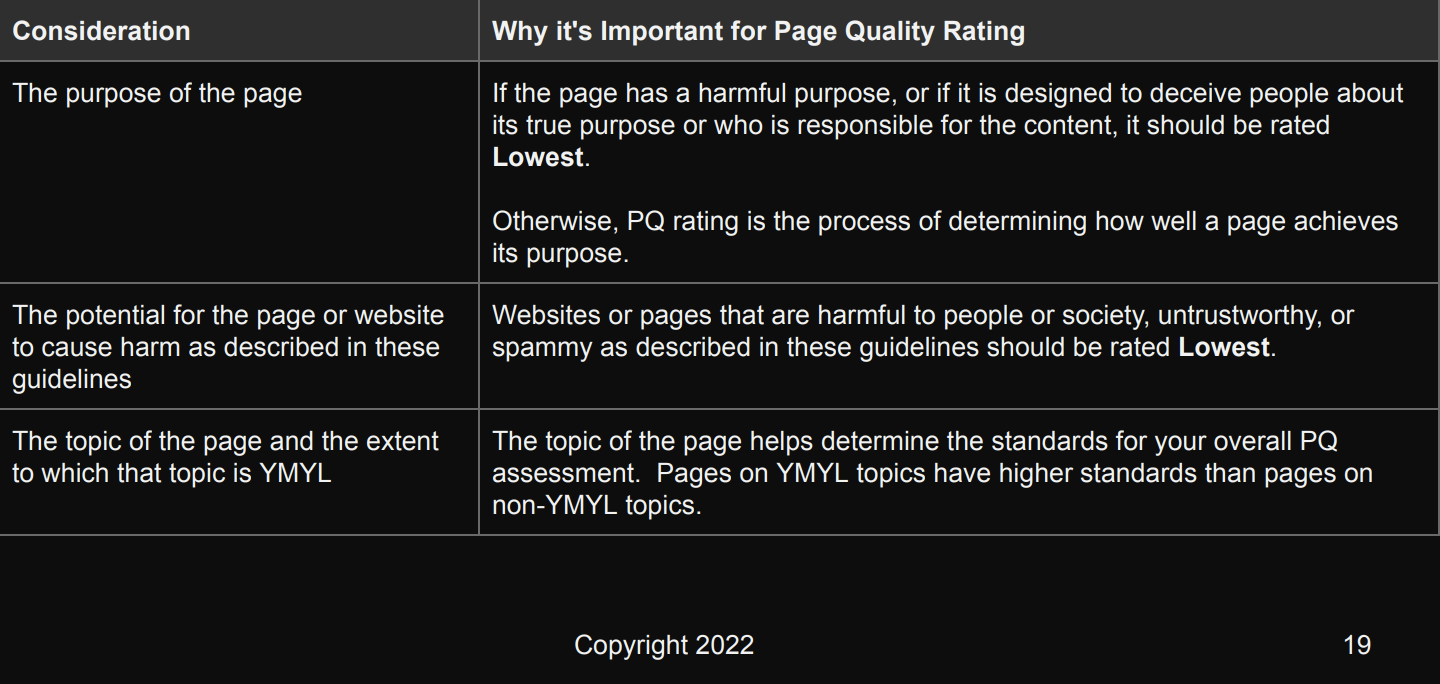
It also notes that ads are necessary for many sites to make money, but that "the way ads contribute to the user experience" should be considered in page quality:

In the example below, you can see an example of an ad that makes the content difficult to read. In addition, other types of advertisements that are obscene or irrelevant will also negatively impact the page experience:
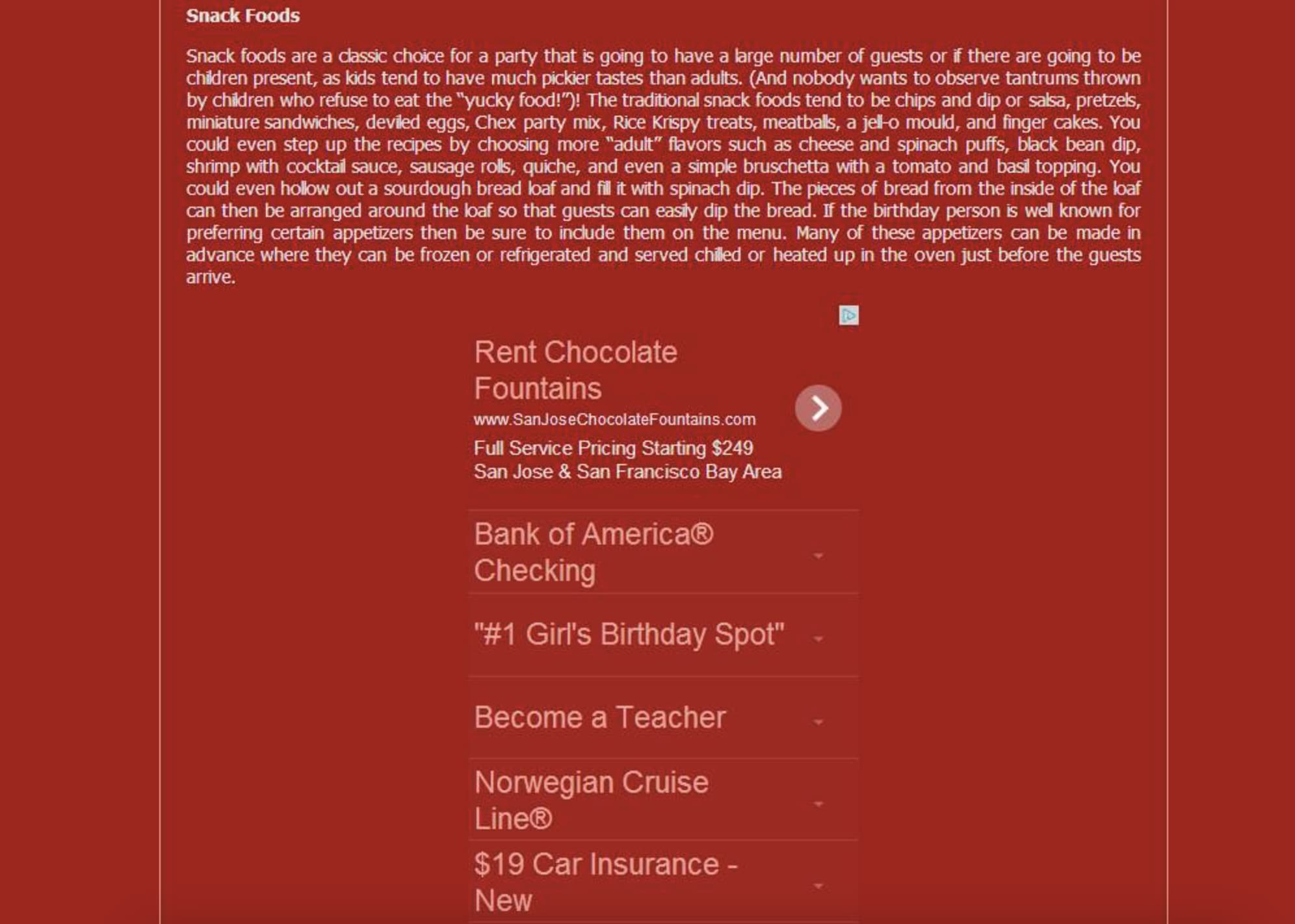
It added the word "authenticity" to the guidelines to measure the quality of content. In August 2022, the issue of being original was mentioned very often. Added a clause that if other sites in the industry have similar content, it should be clear which content is original and which is not. Concepts such as "Talent" and "Skill" should also be considered in terms of page quality and main content (MC):
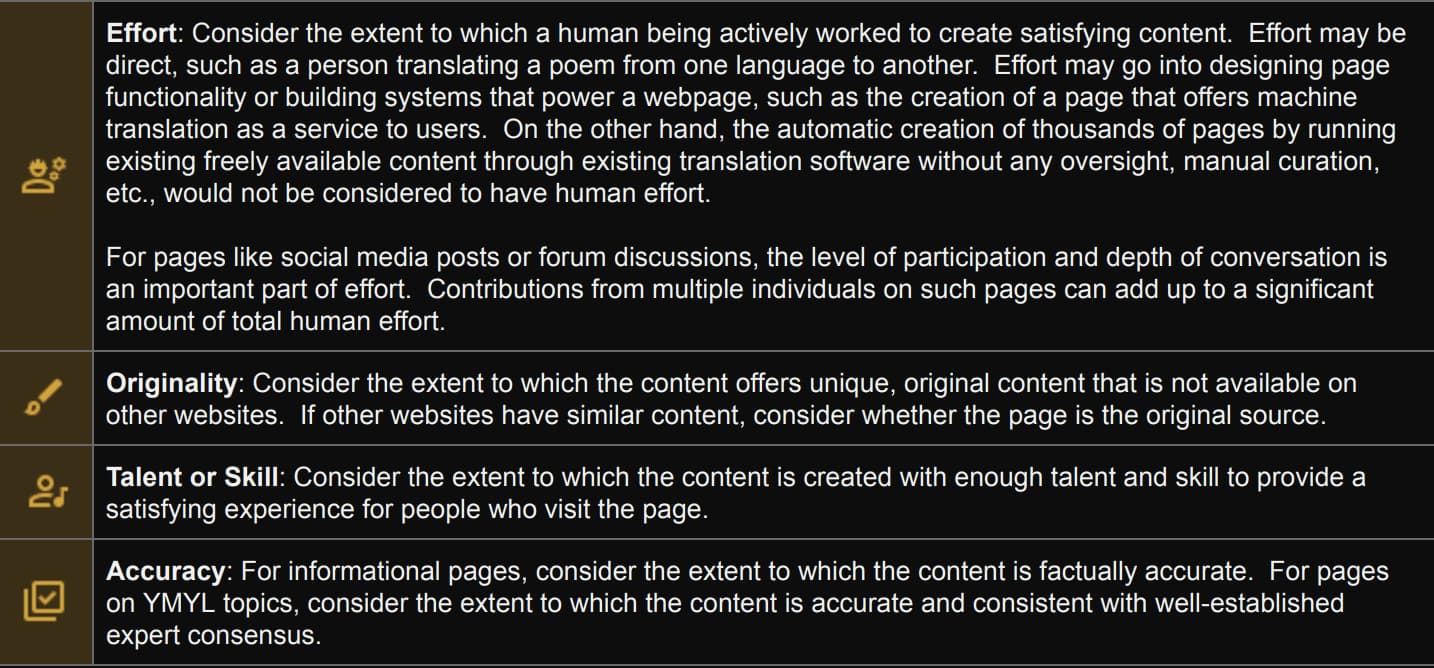
To take a brief example from product review sites, a trustworthy review should help searchers make informed and accurate decisions, rather than just trying to sell the product. First-hand experience has become a part of our lives:
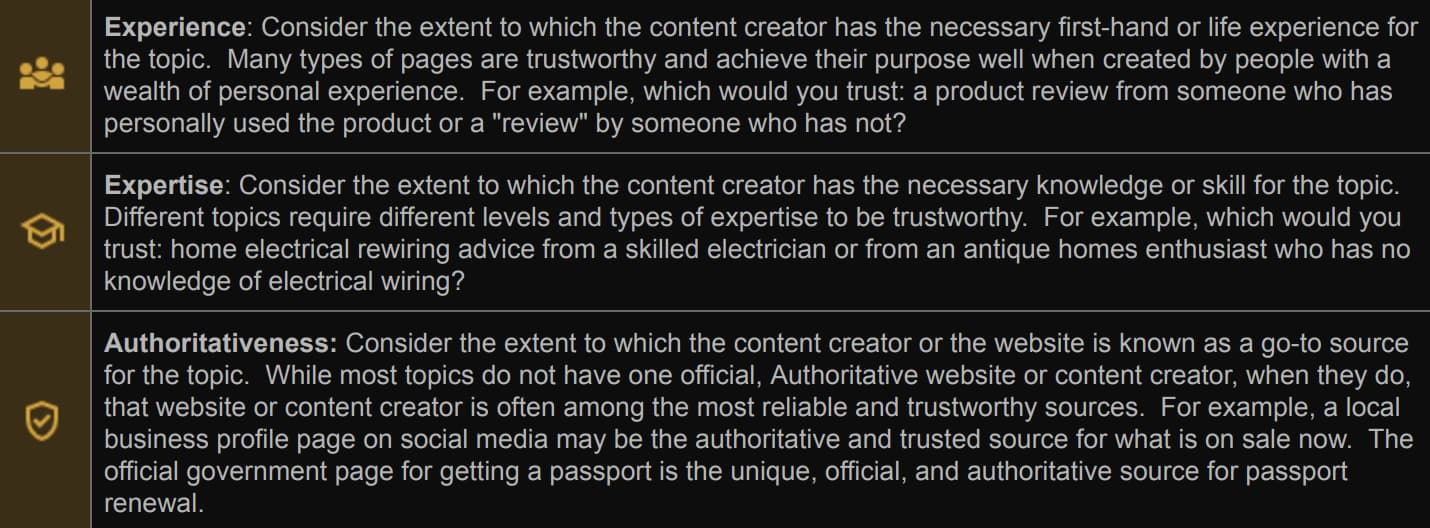
As you may remember, Google elaborated more on these issues with the product reviews update.
What is E-E-A-T?
E-E-A-T, or double E-A-T, stands for Experience, the "E" metric added to the instructions. So E-E-A-T for short:
- Experience,
- Expertise
- Authority
- Trustworthiness
"Experience" refers to and measures content quality by indicating how much experience the content creator has on the topic. Also, experience and expertise are not the same.
EEAT & YMYL Relationship
Your Money or Your Life (YMYL) and EEAT are closely related. To explain more about what this means, YMYL sites produce content on health, legal or financial topics. True or false information can directly affect people's lives.
Which Sites Can Be Within the Scope of YMYL?
- A site for bill payment transactions,
- Pages for money transfer or banking transactions,
- A shopping site where you enter your credit card details,
- A mom blog with parenting advice,
- Sites with advice for pregnant women,
- News websites (covering local or international current events)
- Forum sites (should include forum rules, etc.)
- Sites that provide information about people (such as religion, race, and nationality)
- Automobile safety (LPG, vehicle repair, etc.)
- Legal advice (advocacy, custody, divorce, enforcement, etc.),
- Specialized hobbies (playing guitar, professional photography)
- Financial information (credit, investment, saving money, etc.),
- Sites providing information on Adoption,
- Home renovation & repair (incorrect information can lead to serious loss of money),
- Sites that cover school choice and finding a new job,
- A medical health page (medicine recommendations, veterinarian, dietician, hospital, medical center, health blogs).
News or portal sites with content that falls within the scope of YMYL should also pay attention to these. Examples of YMYL pages;
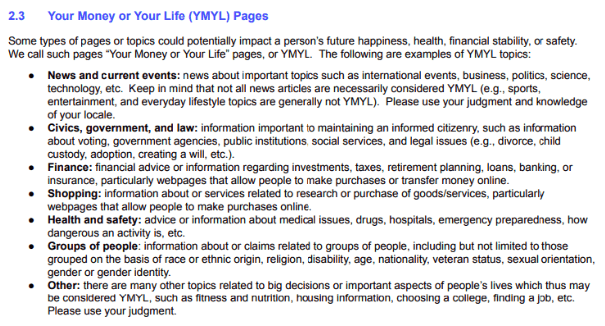
We can say that YMYL pages that give users the correct answer have a high level of EAT. This is because users feel safe on that site and that the content is created by trusted sources. The example below shows a high-quality shopping site. It clearly shows a high amount of user reviews, product features, multiple photos of the product, and processes such as shipping and returns.

Let's look at another example. The site in the image below uses the logo of the Nike company and does not have a physical address. It's an example of a site of the lowest quality;
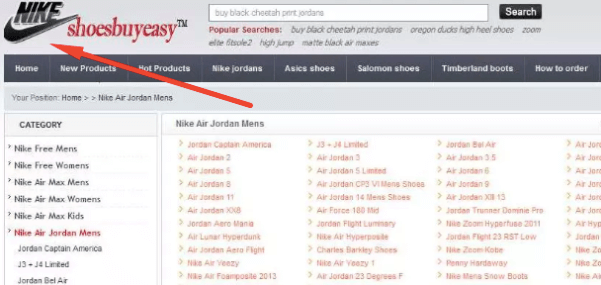
If you are producing content on hobbies, such as feeding fish, the individual experiences of people are more important than expertise. Not all news sites are considered YMYL, for example, topics such as entertainment and daily lifestyle are not considered YMYL. Another example of very low quality is a phishing site that asks visitors for information they shouldn't have, such as bank passwords and social security numbers.
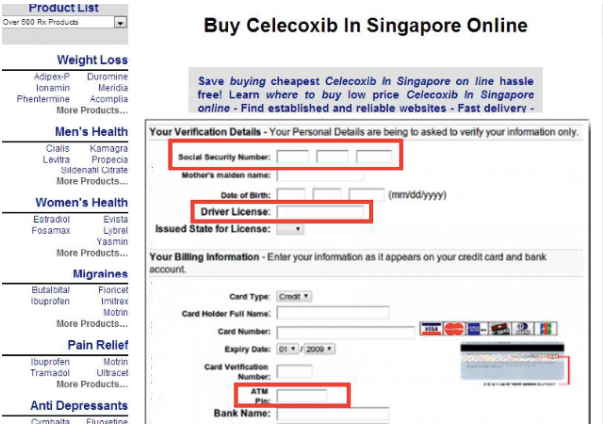
Google actually wants to protect people from bad advice and information by looking at such details.
What is Experience?
According to Google, a person who has personally used the product has more experience than someone who hasn't, therefore building more trust. Examples of experience can be as follows:
- Sharing the unique flavors of a restaurant with original visuals,
- Personal observations and experiences of the travel destination,
- Mentioning the facilities offered by the hotel/hostel,
- Observations before and after treatment/operation,
- Special product reviews and their elaboration.
The example below shows an example of a high-quality video page. 2 engineers show the care and funny side of cats with original content. The most important detail about the experience is that they are experienced in "cat adoption". This content is an example of High E-E-A-T rather than formal expertise about cats:
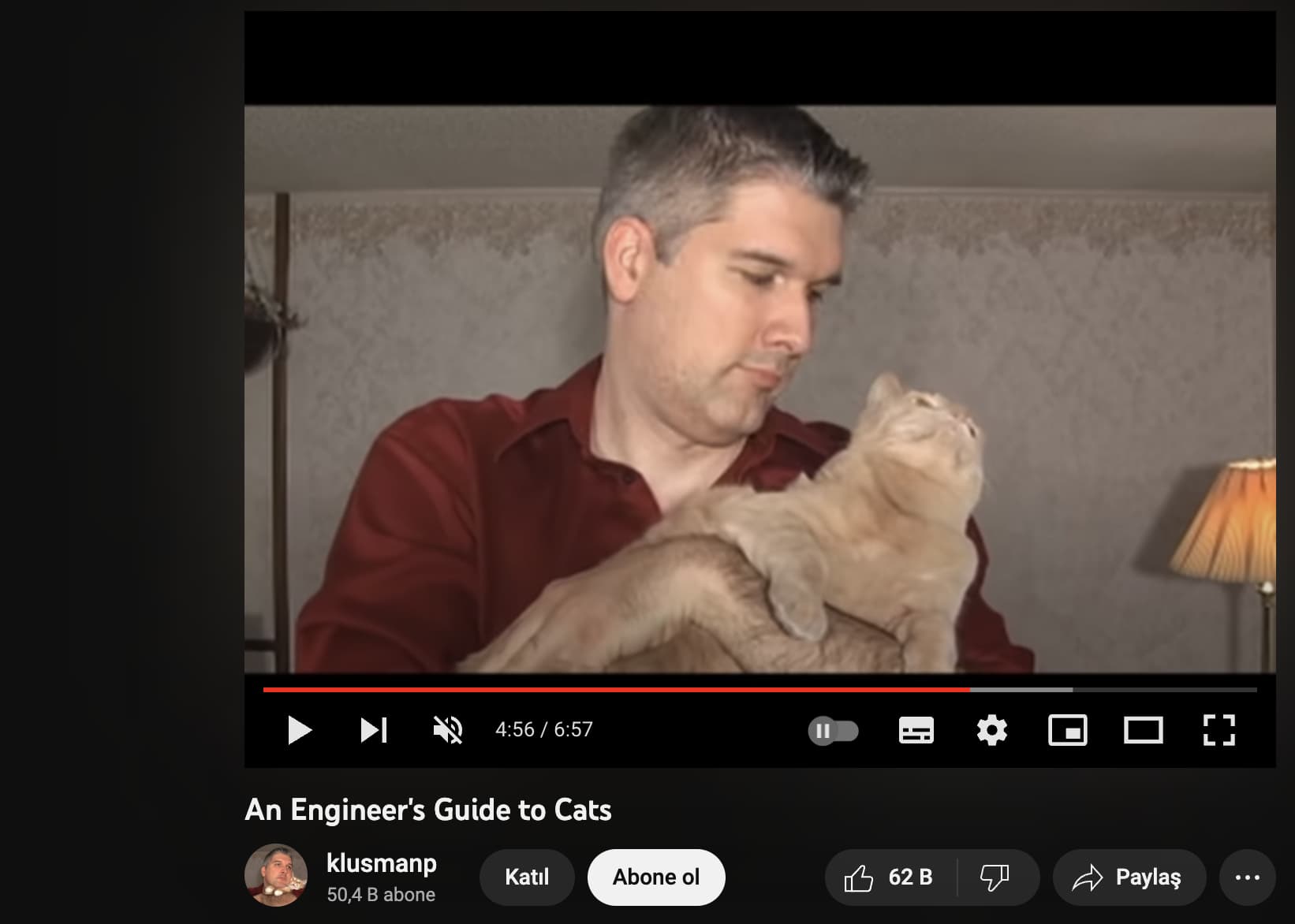
An example of the highest quality experience comes from a recipe. The author describes his entire experience with the pancake recipe one by one with visuals. He provides top-level information on ingredients, preparation time, and everything else. His expertise and skill are evident in the original and very satisfying MC:

You can also think of articles that support the places they have visited with photos and other information (transportation, places to eat, etc.) as the types of pages where experience is involved.
Google has also clarified the key difference between Experience and Expertise with a table. This answers whether experience or expertise is needed for various topics such as health issues, voting, and saving for retirement. For example, for a query such as "How to Vote", Experience might be a post by an ordinary social media user about why they should vote and why they believe that. Expertise could be a page with details about who can vote.
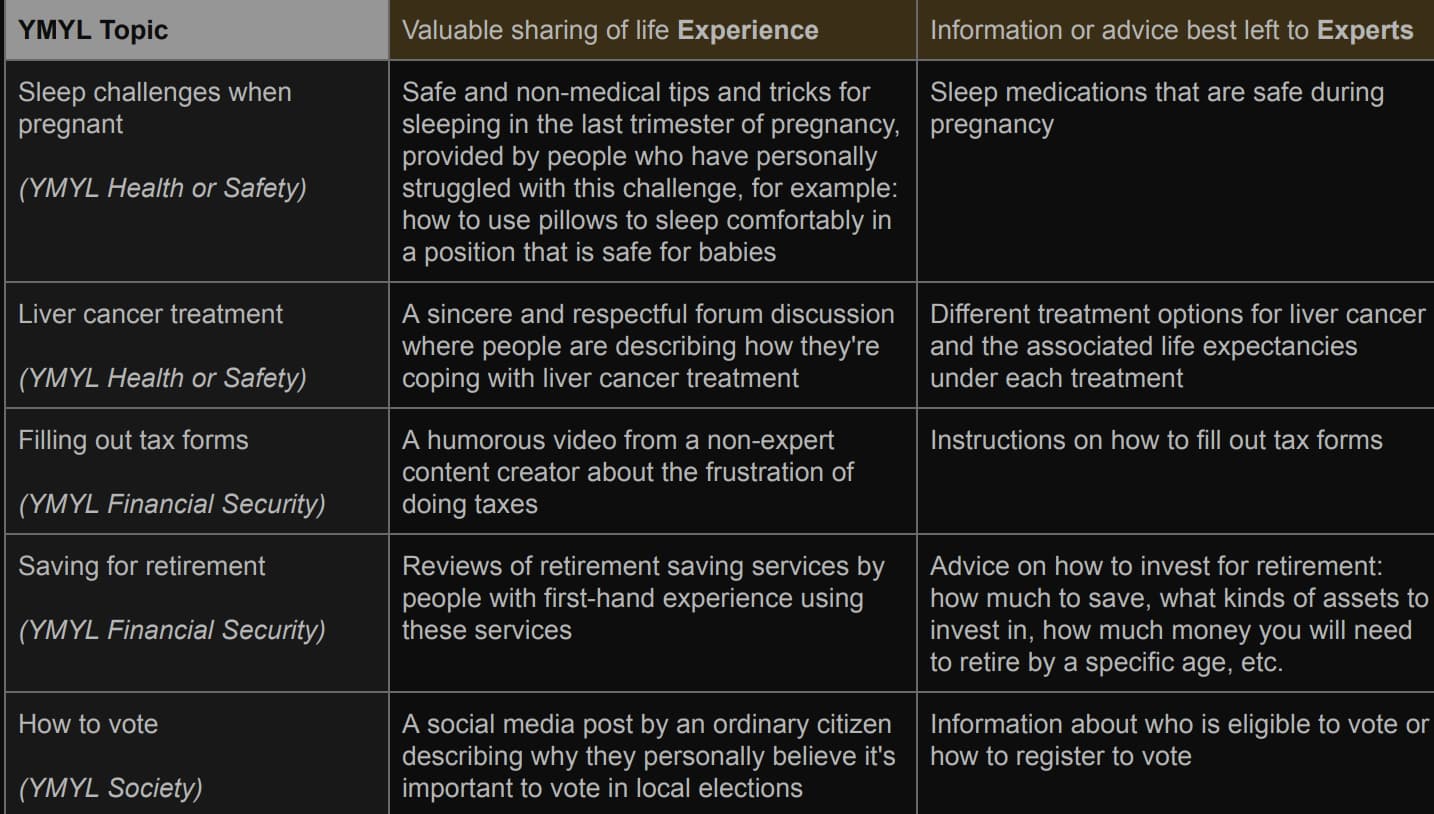
What is Expertise?
A site that wants to be successful must demonstrate that it is truly expert and skilled in its field. The language and information used to produce content should demonstrate expertise, not make unsubstantiated claims or provide misinformation, deliberately or otherwise. You should make your expertise known not only to you but also to the people who visit your site. How can you do this? For example, when you go to the doctor, details such as authorization certificates and diplomas with the doctor's name and title can provide you with an indication of the expertise & reliability of that doctor. When we reflect on this real-life situation on the internet, ensuring that the same documents are displayed on the website will help with E-A-T. A sample doctor profile;
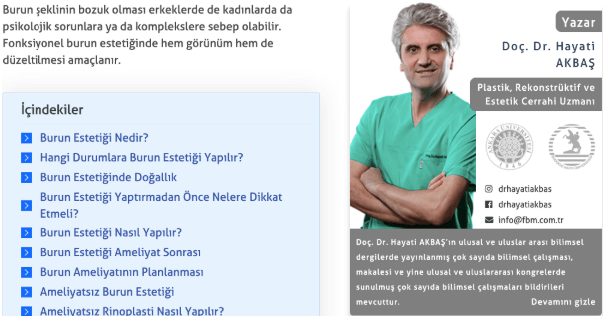
Adding the author profile to the created content will help users to provide much more detailed information about the creator of the content. You can also share this quality and expertly created content on social media platforms such as Twitter & LinkedIn. You can also show your reputation outside your site by guest authoring on relevant blogs. If your content is written and controlled by a medical team and not a doctor, you can take a look at the Acıbadem example below.

For sites that do not directly affect people's lives (such as gossip or satire), EAT may not be important for YMYL. User-generated content (UGC) may not always show low EAT, but if it falls within the scope of YMYL, it may show low EAT. If we look at the example in the guide, the topic is related to YMYL, and the respondents do not have any expertise, etc. on the subject. Forums etc. need to specifically address this issue.
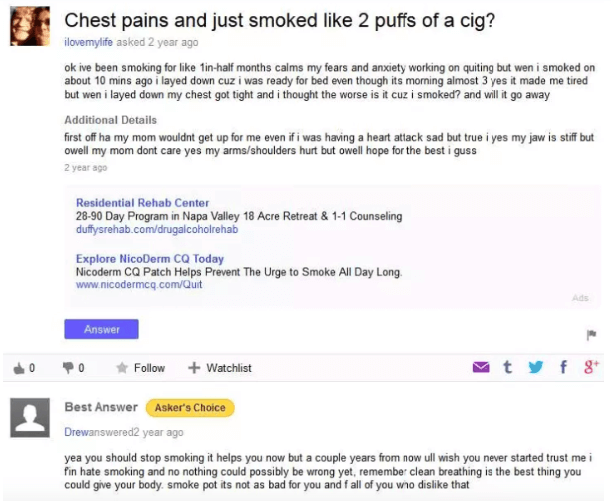
What is Authority?
Google may want to understand how relevant the author of the content is to their field and whether they have the necessary competence in the subject they are writing about. Let's take a real-life example, for example, you bought a newspaper or magazine. You read a page about a health or economic issue.
If you don't know who the author of the news is or if the identity of the doctor who makes health recommendations is hidden, this would arouse your suspicion, wouldn't it? That's why the authors on the website should be given not only their first names but also their surnames. These should not be hidden and should be placed in easy-to-find sections. Here is an example of Hamamingo, which shows its authority to its visitors and has very good ratings and comments.
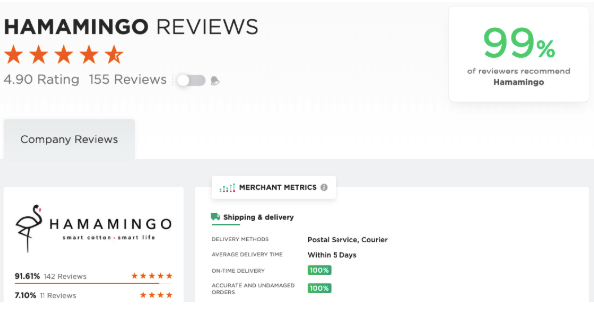
Consider getting reviews not only from Google My Business but also from sites like Google Shopping, Reviews.co.uk, Yelp, or Zomato. However, publishing only positive reviews on your site may seem suspicious to your visitors. Always maintain that line between positive and negative reviews and do not hesitate to explain it. Any associations, organizations, or other credible sources that the site is affiliated with should be displayed on the site in sections that are clearly visible to users.
If you sell products, ask your customers to rate you. You can even incentivize them for unbiased reviews with small rewards. Reviews will also help you locally if you are a smaller business, especially if you work locally. As in the image below, Iyzico clearly shows that it is an authorized organization.

If you're a medical provider, you can also ask your patients for their opinions before or after treatment/operation in a way that complies with relevant laws and regulations. Google also tells its raters how to conduct reputation research on a site;

Your link doesn't need to be on every page where your site is mentioned. Google can also see mentions as non-links and perceive this as a signal. For example, when we query Mediamarkt, we can see that it is mentioned on many news sites.
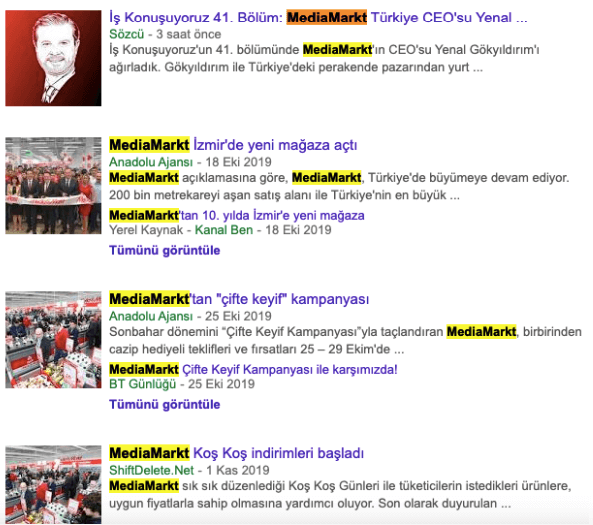
If your organization has an A+ rating, for example by the BBB, this indicates a positive reputation:
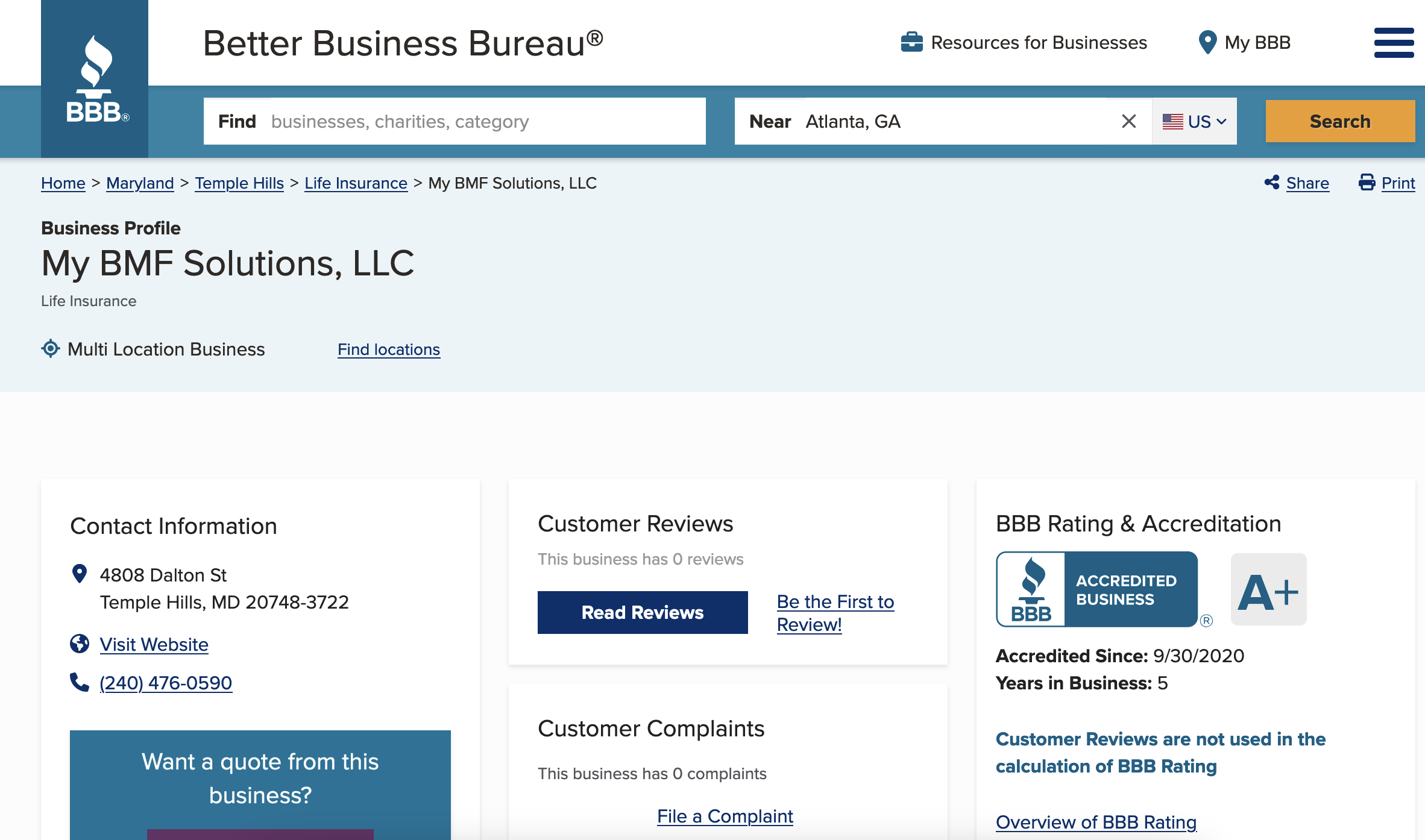
What is Credibility?
Let's look at the security issue from this point of view. If Google sends visitors to a fraudulent site, both the visitor and, after a while, Google's credibility could be undermined. As a result, Google will want to make sure that all sites in the SERPs (Search Engine Results Pages) are as trustworthy as possible and meet the needs of visitors in a complete way. Here's an example of how news sites can show their visitors that they are trustworthy;
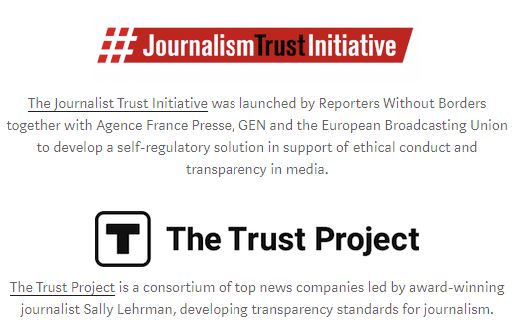
There is no limit to how much information you can fit into the concept of "trust". Designs that make your users feel that they are safe and secure, etc. you can do anything. By using HTTPS on your site, you can show that their personal data is safe. Also, on August 6, 2014, Google announced that HTTPS is the official ranking signal. We can show that we are reliable not only by buying and installing a free SSL certificate but also by showing much other information. The fact that Akakçe shows that it uses EV SSL can be considered an indicator of reliability.

Some suggestions for demonstrating credibility;
- About us pages,
- Academic studies/titles,
- News about the site in the press,
- Presentation of any awards won or nominated,
- If available, commercials or videos showing success stories,
- Locations of stores with a real physical location (customers will know they are dealing with a real organization,
- Customer service contact details,
- Privacy & return policies,
- A page explaining shipping processes,
- HTTPS (or EV SSL if available) makes you feel more secure,
- Payment methods and banks' logos,
- Various on-site stamp seals,
- 3D payment options,
- Ratings, and comments from different rating agencies.
When damaging and misleading information is provided, trust will naturally decrease. For example, giving incorrect dates for an election or stating that you can retire by buying a national lottery ticket is seen as "harmful misleading information":

It is not expected to have all of the above items on a site to increase credibility. You can plan to use the reliability indicators that are most suitable for your site in these items. In other words, it would not be right for a site in the health sector to provide information about 3D payment methods. For example, Altınbaş's footer section clearly shows cargo processes and customer relations.

Google's specifications for pages like Contact;

One of the simplest indicators of expertise is to show the author's bio and social media information on the author's profiles. You can also refer to this article on creating quality bios. Sample author profile from the Los Angeles Times;
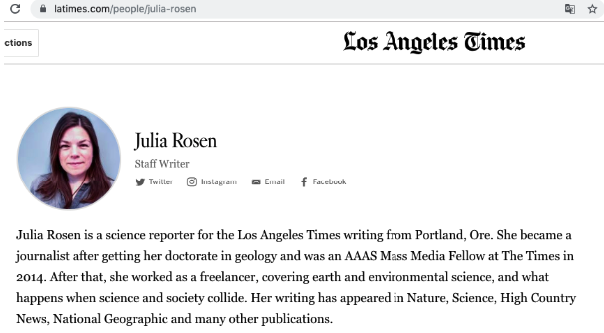
Another example from the guidelines is from the Cleveland Clinic site;

You can reinforce your trust status by linking to high-quality sites related to your industry. You can link your content to official sources to show what your content is about. The example article below is an excerpt from an article about the future of the FIFA World Cup soccer ball:

In December 2022, a new section on "understanding who is responsible for the content of the website and who created the content on the page" was added. In fact, this section was also important for ranking in Google News:

Google says that from the Wikipedia article you can see that this site is considered one of the top 4 hospitals in the US. It is also mentioned quite often in Wikipedia Page Quality.

A review by the manufacturer of the product is not credible because of conflicts of interest (Our product is great, try it!). Even reviews by social media influencers may not be credible if there is a clear conflict of interest.
Why is EEAT so Important for Websites?
Google states that quality assessment guidelines (Google rater guidelines) do not directly affect the ranking of pages. If you provide services in areas that affect people's lives, finances, and health, EEAT is something to think about. As mentioned, the votes that quality raters use for sites do not directly affect ranking, but the findings can be used by Google to show higher-quality sites in the SERP.
After the Google update in March 2019 and many other minors and major updates, this is the one thing everyone can agree on: E.E.A.T. If you don't offer a good experience in the field you serve, if you are not an expert, authoritative or trustworthy, your site may appear low quality to Google.
How Can EEAT Get Better?
Let's briefly explain what you can do to make your site more authoritative and expert in its field. Please note that there are many ranking factors other than what we have mentioned here.
- The content you publish should serve a specific purpose and provide original and accurate information,
- Minimize the use of ads and pop-ups (do not use aggressive ads,
- Avoid clickbait,
- Try to get good reviews from other sites (3rd party),
- If you have a content-based site, such as a news site, consider showing all your author information on your imprint page.
- You can add your references (clients you have worked with),
- Consider keeping your site up to date. This doesn't necessarily mean new articles, but also replacing old content with new information.
- Use writers with a real name and profile photo if available.
- Various social proof. For example, users show and comment on your brand on different social media platforms.
- Don't be afraid to cite sources. Link to various sources by giving honest attribution (Google News publishers know this phrase well :) ) in your content.
- Focus on what you are competent in. For example, if your main content is about SEO or data analysis, don't confuse users by producing recipe-related content.
- Produce articles in natural language, don't bore yourself to use keywords.
- Publish original research or reports,
- If you can, improve your site by asking 20-30 people what they think about your site, etc.
- And you can think about all the things we've touched on in this article, like credibility & competence.
A page with low EEAT content may not directly affect the EEAT value of other pages, but it can have a negative impact on the overall reputation of the site. In short, Google EEAT updates consist entirely of steps to improve the quality of the site.
If you want to add extra, if you have any experiences or questions, you can send them in the comments section. I will actively update the article as the guide is updated and as I find the time.
Useful Resources;
















